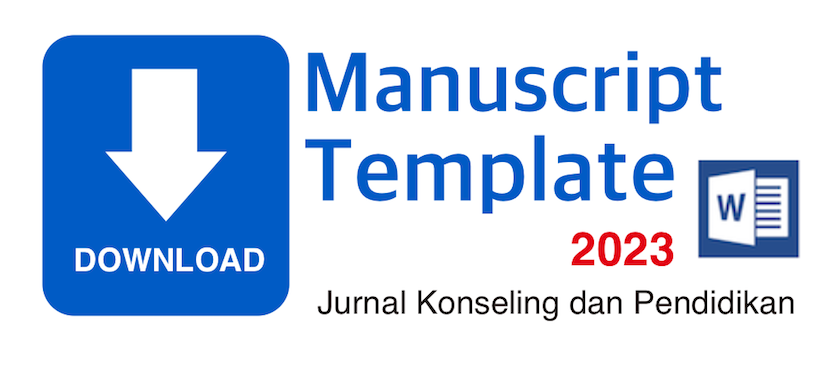Development of integrated thematic teaching material used discovery learning model in grade V elementary school
 ), Muhammadi Muhammadi(2), Mansurdin Mansurdin(3), Rijal Fahmi(4),
), Muhammadi Muhammadi(2), Mansurdin Mansurdin(3), Rijal Fahmi(4), (1) Universitas Negeri Padang
(2) Universitas Negeri Padang
(3) Universitas Negeri Padang
(4) Universitas Negeri Padang
 Corresponding Author
Corresponding Author
DOI : https://doi.org/10.29210/129400
Full Text:
 Language : en
Language : en
Abstract
Keywords
References
Alismail, H. A., & McGuire, P. (2015). 21 St Century Standards and Curriculum: Current Research and Practice. Journal of Education and Practice, 6(6), 150–155.
Amiyani, R., & Widjajanti, J. B. (2019). Self-confidence and mathematics achievement using guided discovery learning in scientific approach. In Journal of Physics: Conference Series (Vol. 1157). https://doi.org/10.1088/1742-6596/1157/4/042093
Arikunto, S. (2009). Dasar-dasar Evaluasi Pendidikan. Jakarta: Bumi Aksara.
Barrett, P., Gaskins, J., & Haug, J. (2019). Higher education under fire: implementing and assessing a culture change for sustainment. Journal of Organizational Change Management, 32(1), 164–180. https://doi.org/10.1108/JOCM-04-2018-0098
Bequette, M., Cardiel, C. L. B., Cohn, S., Kollmann, E. K., & Lawrenz, F. (2019). Evaluation Capacity Building for Informal STEM Education: Working for Success Across the Field. New Directions for Evaluation, 2019(161), 107–123. https://doi.org/10.1002/ev.20351
Capuano, N., & Toti, D. (2019). Experimentation of a smart learning system for law based on knowledge discovery and cognitive computing. Computers in Human Behavior, 92, 459–467. https://doi.org/10.1016/j.chb.2018.03.034
Cheng, S.-F. (2018). Application of Creative Teaching. Hu Li Za Zhi The Journal of Nursing, 65(6), 4. https://doi.org/10.6224/JN.201812_65(6).01
Desyandri. (2011). Peningkatan Pembelajaran Seni Musik Berbasis Pendidikan Budaya dan Karakter Bangsa di Pendidikan Dasar. In Seminar Internasional Etnik Serumpun Indonesia-Malaysia.
Desyandri. (2012). The Usage of CTL Approach to Improve the Process and Learning of Singing to Studen Class III Elementary School. Jurnal Pedagogi FIP UNP.
Desyandri; Vernanda, D. (2017). Pengembangan bahan ajar tematik terpadu di kelas v sekolah dasar menggunakan identifikasi masalah Desyandri. In Seminar Nasional HDPGSDI Wilayah 4 (pp. 163–174).
Faisal. (2014). Sukses Mengawali Kurikulum 2013 di SD.Yogyakarta: Diandra Creative.
Hernawan, A. H. (2009). Pengembangan Model Pembelajaran Tematik di Kelas Awal Sekolah Dasar. Makalah.
Hosnan. (2014). Pendekatan Saintifik dan Konseptual dalam Pembelajaran Abad 21. Jakarta: Ghalia Indonesia
Kobayashi, K. (2019). Interactivity: A potential determinant of learning by preparing to teach and teaching. Frontiers in Psychology, 9(JAN). https://doi.org/10.3389/fpsyg.2018.02755
Kung, F.-W. (2019). Teaching second language reading comprehension: the effects of classroom materials and reading strategy use. Innovation in Language Learning and Teaching, 13(1), 93–104. https://doi.org/10.1080/17501229.2017.1364252
Kurniasih, I dan Sani, B. (2014). Implementasi Kurikulum 2013 Konsep dan Penerapan. Surabaya: Kata Pena.
Lenk, T., Glinka, P., & Hesse, M. (2019). Educational Federalism in Germany–Financial Evaluation of the Constitutional Law Amendment . Wirtschaftsdienst, 99(3), 196–202. https://doi.org/10.1007/s10273-019-2418-8
Machali, I. (2014). Kebijakan perubahan kurikulum 2013 dalam menyongsong Indonesia emas tahun 2045. Jurnal Pendidikan Islam, 3(1), 71–94.
Malsbary, C. B. (2018). Teachers as Creative Designers in Transnationalism. Urban Education, 53(10), 1238–1264. https://doi.org/10.1177/0042085915613548
Muslich, M. (2010). Text Book Writing. Jogjakarta: Ar-Ruzz Media Group
Plom, T. Dan Nieveen, N. (Eds). (2017). An Introduction to Educational Design Research. Enschede: SLO (Netherlands institute for curriculum development).
Prastowo, A. (2014). Pengembangan Bahan Ajar Tematik: Tinjauan Teoretis dan Praktis. Jogjakarta: DIVA Press.
Priatna, N., Martadipura, B. A. P., & Lorenzia, S. (2019). Development of mathematic’s teaching materials using project-based learning integrated STEM. In Journal of Physics: Conference Series (Vol. 1157). https://doi.org/10.1088/1742-6596/1157/4/042006
Riyanto,Y. (2010). Paradigma Baru Pembelajaran: Sebagai Referensi Bagi Pendidik dalam Implementasi Pembelajaran yang Efektif dan Berkualitas. Surabaya: Prenada Media.
Ridwan & Sunarto. (2007). Pengantar Statistik Untuk Penelitian: Pendidikan, Sosial, Komunikasi, Ekonomi dan Bisnis. Bandung: Alfabeta.
Saputri, A. T. W. (2017). Pengembangan Desain Pembelajaran Tematik Integratif Berbasis Pendekatan Contextual Teaching and Learning (CTL) Kelas 4 Sekolah Dasar. Program Studi Pendidikan Guru Sekolah Dasar FKIP-UKSW.
Siregar, Sy. (2011). Statistika Deskriptif untuk Penelitan. Jakarta: Raja Grafindo Persada
Sukerti, N. N., Marhaeni, A. A. I. N., & Suarni, N. K. (2015). Pengaruh Pembelajaran Tematik Terpadu melalui Pendekatan Saintifik terhadap Minat Belajar dan Hasil Belajar Siswa Kelas IV SD Negeri 2 Tibubeneng Kuta Utara. PENDASI: Jurnal Pendidikan Dasar Indonesia, 4(1).
Syarafina, D. N., & Mahmudi, A. (2019). The effect of guided discovery learning on student self-efficacy. In Journal of Physics: Conference Series (Vol. 1157). https://doi.org/10.1088/1742-6596/1157/4/042095
Teplykh, M. S., Akhmetzyanova, M. P., & Bashirova, T. A. (2019). Problematization as an innovative form of philosophy teaching. Perspektivy Nauki I Obrazovania, 37(1), 120–134. https://doi.org/10.32744/pse.2019.1.9
 Article Metrics
Article Metrics
 Abstract Views : 5232 times
Abstract Views : 5232 times
 PDF Downloaded : 3107 times
PDF Downloaded : 3107 times
Refbacks
- There are currently no refbacks.

This work is licensed under a Creative Commons Attribution 4.0 International License.



